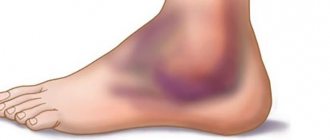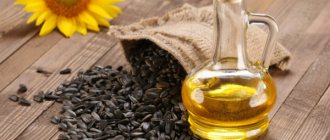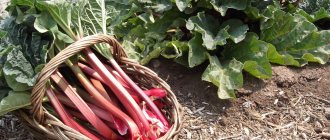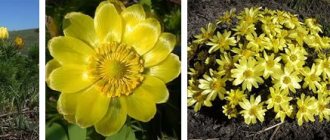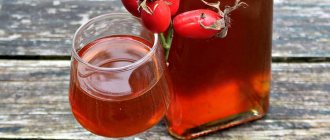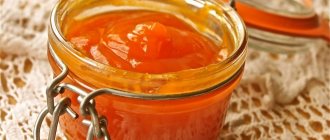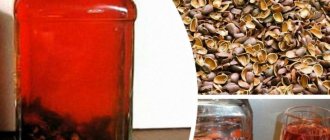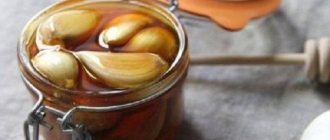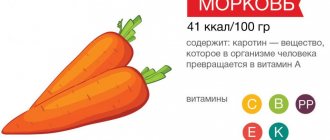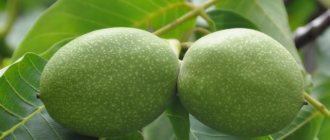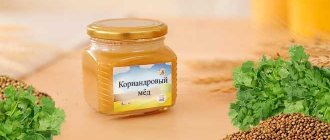The benefits and harms of tea with thyme, the medicinal properties of this medicinal plant are known to connoisseurs of traditional medicine, as well as to those who like to drink healing infusions. This natural healer also has other names: thyme, Bogorodskaya herb. The antiseptic properties of the essential oils of this plant are used in the form of smoke fumigation. But in most cases, a water infusion of thyme is used and added to black and green tea as an aromatic and flavoring additive, as well as a medicinal agent.
Benefits of tea with thyme (thyme)
Thyme has long been used in folk medicine due to its beneficial and medicinal properties. Thyme is used as:
- antiseptic;
- expectorant;
- anti-cold and antiviral;
- antipyretic;
- diaphoretic;
- diuretic;
- pain reliever;
- immunostimulating;
- anthelmintic;
- antifungal;
- restorative;
- sedative (calming agent).
Plant composition:
- essential substances (thymol);
- bioflavonoids;
- tanning components;
- vit. Group B (B1, B12, B5, B6, B2);
- vit. WITH;
- organic acids;
- mineral components (calcium, iron, selenium, manganese, potassium).
Thymol has strong bactericidal properties. Tannins (tannins) have an astringent, anti-inflammatory effect. Among the acids, it is worth highlighting ascorbic acid and its benefits for blood vessels and maintaining immunity. B vitamins normalize nervous activity. Potassium is good for the cardiovascular system. Iron is necessary for hematopoiesis. Bioflavonoids have antioxidant and protective properties.
Infusion with thyme is used for medicinal purposes:
- for bronchitis, tracheitis, bronchopulmonary diseases;
- for influenza, ARVI, acute respiratory infections, sore throat, fever, whooping cough, tuberculosis;
- for migraines and dizziness;
- for dysbacteriosis, intestinal atony, inflammatory diseases of the gastrointestinal tract (ulcers, enterocolitis);
- from skin diseases of an infectious, fungal and parasitic nature;
- neuralgic diseases, radiculitis, neuritis;
- in case of iron deficiency anemia;
- from infectious lesions of the urinary system (cystitis, urethritis);
- against helminths;
- for inflammatory diseases of the genital organs (vaginitis, cervicitis, prostatitis);
- hyperfunction of the thyroid gland;
- cardiovascular diseases, peripheral circulatory disorders.
An aqueous infusion of thyme is used as a rinse in the treatment of infectious and fungal diseases of the oral cavity: stomatitis, inflammation of the gums, larynx and nasopharynx.
In women's practice - as douching.
Thyme is especially important for smokers. Clears the bronchial mucosa of nicotine tars due to its expectorant properties. Reduces the risk of bacterial infections of the respiratory system. Beneficial as a strengthening agent for vessels damaged by nicotine. Tea with thyme normalizes blood pressure. Used for insomnia and as a sedative. Pillows are stuffed with Bogorodskaya grass to improve sleep. In addition to the water infusion, an alcohol tincture is also prepared for rubbing against radiculitis and neuralgia.
Important! Thyme is a natural herbal remedy. When used wisely, it is not toxic to the liver and does not cause harm to the body.
For women
Thyme is used beneficially for the female body for gynecological diseases, as a herbal remedy with strong antibacterial and anti-inflammatory properties. Thyme is especially useful in cases of bacterial infection. In complex treatment, an infusion of Bogorodskaya herb helps to improve the condition, reduce the temperature, remove the source of inflammation and improve the functioning of the affected organ. The analgesic property of thyme is essential, making it possible to reduce the dosage and possible harm from taking synthetic painkillers.
Comment! Bogorodskaya herb is useful for women for internal use and in the form of medicinal douching (in this case, a more concentrated solution should be prepared).
For men
Thyme infusion is beneficial for prostatitis. Relieves inflammation, relieves pain. Increases potency, improves blood circulation. Serves as a preventive measure for cardiovascular pathologies. As you know, the male part of the population is more susceptible to heart attacks and strokes, especially in old age.
For prostatitis, thyme is best used in combination with other medicinal herbs that are used for this disease. The healing properties of thyme with fireweed tea are enhanced. These plants relieve inflammation well. Usually they buy fermented fireweed tea, with a richer taste. In Tsarist Russia, fireweed (Koporo tea) was exported in tons to Europe and was in great demand, including due to its beneficial effects on the male body without harmful side effects. The medicinal infusion can be brewed in a thermos or teapot.
What are the benefits of an invigorating drink?
Regular consumption of a small amount of decoction strengthens the immune system, improves the condition of the skin, stimulates appetite, eliminates migraines, relieves depression and insomnia, supports vision, invigorates and tones.
Beneficial properties of thyme in tea for women
Some believe that the plant is an excellent remedy in the fight against gynecological ailments. Preparations and decoctions from thyme can be prescribed by the attending physician when determining inflammation of the appendages, painful and prolonged periods, bleeding, hormonal imbalances and during menopause. It can relieve migraines and improve milk supply in nursing mothers. In addition, it may affect kidney function and has a diuretic effect.
For men
Thyme is a versatile herb in the field of men's health. In some cases, it has shown itself to be excellent in neutralizing inflammation and infections in the genitourinary system. It reduces swelling of the urinary canals during prostatitis, thereby improving the outflow of urine from the body.
May have a beneficial effect on the dynamics of treatment for erectile dysfunction. During consumption, additional amounts of testosterone are produced, which helps strengthen male power. The chemical compounds included in the composition have a positive effect on the life cycle of sperm, accordingly, increasing the time before ejaculation.
Answering the question of what thyme tea helps with, we can say that it is useful for representatives of the stronger sex who suffer from baldness. Ursolic acid contained in its composition can stimulate hair follicles, activating hair growth.
In ancient times, infusions were used against alcohol addiction, causing nausea from drinking alcohol.
For children
The plant can cure children from dry cough, whooping cough, bronchitis and pneumonia. It is strictly forbidden to take medications in which thyme is the main component at the same time as the tincture. It is also worth noting that baths with it help to calm down, improve sleep and stimulate appetite.
Is it possible to drink tea with thyme for pregnant and lactating women?
During pregnancy, you should take thyme infusion with caution so as not to cause harm to your health. It is not recommended to drink a strong infusion of the plant.
Important! Thyme has a tonic effect on the muscles of the uterus. The possible abortifacient effect and harm to the fetus should be taken into account.
During lactation you can use this medicinal plant. Tea with thyme during breastfeeding helps increase the quality and quantity of breast milk. When using an infusion with thyme, it is necessary to exclude allergic reactions to the plant.
Medicinal properties
Thyme was known to Theophrastus and Avicenna. The founder of botany and the great doctor were sure that thyme prolongs a person’s life. The plant has the following beneficial properties:
- Has an antiseptic effect. Used in the treatment of inflammation of the uterine appendages, tonsillitis, tonsillitis, stomatitis, pharyngitis, halitosis, gingivitis, laryngitis, ARVI.
- It has an expectorant and bronchodilator effect, so it is used for prolonged bronchitis and whooping cough.
- Has a diaphoretic effect. Used when fever occurs.
- Relieves pain of various natures and spasms.
- Eliminates dysbacteriosis, relieves diseases of the stomach and intestines.
- Used to treat rheumatism, arthrosis, gout.
- Has a calming effect and is used for insomnia.
- Effective for prostatitis and impotence.
- Helps relieve swelling and inflammation caused by bee stings.
- It is used in the treatment of alcoholism, as it promotes the removal of ethanol breakdown products.
- Tea with thyme helps increase efficiency, relieves chronic fatigue, and strengthens the immune system.
How to brew tea with thyme correctly
The benefits and harms of tea with thyme largely depend on how and in what way the drink was prepared.
Thyme, like any medicinal plant, is best brewed in a thermos for medicinal purposes. Dosage: 3 tablespoons per liter of water.
Advice! In order to preserve the beneficial properties of the plant as much as possible, it is recommended to use a thermos with a glass flask that prevents oxidation, or other non-metallic containers.
Brew with hot water no higher than 80 °C. Leave for at least 2 hours. As a flavoring and aromatic additive, a light preventative and general strengthening agent, a drink from thyme can be prepared like regular tea (in a teapot or even directly in a mug). It is necessary to let it brew for some time.
Black tea with thyme
Thyme in tea brings tangible benefits to the body, therefore, in the absence of direct contraindications to taking this medicinal plant, you should add a medicinal drink to your diet as often as possible. Thyme has a pleasant aroma and improves the taste of the drink.
Black tea is used as an astringent for intestinal disorders and food poisoning: tannins help bind and remove harmful substances from the intestines. The tanning components of thyme enhance this healing effect by adding anti-inflammatory and antibacterial properties.
Black tea with thyme is also useful for preventing colds. In this case, it is necessary that there be a sufficient amount of thyme herb in the drink for a therapeutic effect.
Green tea with thyme
Green tea contains biologically active and beneficial substances for the body. You should also consider caffeine, which is quite high in some teas. Theobromine and caffeine have tonic properties and increase blood pressure. Green tea contains more of these active components than black tea.
Important! Drinking strong brewed green tea for hypertension is fraught with sudden jumps in blood pressure, which is harmful to health.
When thyme is added, the drink becomes more aromatic and beneficial for the heart and blood vessels.
The overall vitamin and mineral composition and antioxidant properties of tea are enhanced. Anti-inflammatory and bactericidal properties are also improved.
Herbal tea with thyme
When they say “tea,” they usually mean the familiar black, green, and less often white tea. An infusion of medicinal herbs is also commonly called “tea”, with the addition of the word “herbal”. At the same time, there may not be tea itself, as a separate plant, in such a drink.
To increase the diaphoretic, antipyretic, antibacterial, anti-inflammatory and expectorant effects of thyme, oregano and coltsfoot are added to it. The resulting herbal infusion is used in cases where it is necessary to cope with colds, flu, sore throat, and ARVI. This healing drink improves the discharge of sputum in bronchopulmonary diseases, increases sweating, normalizes body temperature, which contributes to the rapid cleansing and restoration of the body from an infectious disease. This is the benefit of herbal tea with thyme and oregano.
Chemical composition
The composition of thyme differs slightly depending on where it is grown. However, all plants contain:
- Carvacrol is a natural antibiotic that destroys pathogenic bacteria.
- Essential oils, including thymol, which has an antiseptic and anti-inflammatory effect.
- Caffeic, ursolic, chlorogenic, quinic, oleic acids.
- Ascaridole is an organic compound used to fight intestinal parasites.
- Choline is a vitamin-like compound that has a beneficial effect on the nervous system.
- Flavonoids are substances that help strengthen blood vessels.
- Borneol is a natural alcohol that has proven itself as a remedy for healing cuts, insect bites and eliminating bruises.
- Cymol is an aromatic ester used in cooking and for making perfumes.
- Tannins that have a bactericidal effect.
- Gum is a carbohydrate that helps reduce intestinal irritation.
- Terpineol is an alcohol that has an antimicrobial effect.
- Thyme contains vitamins A, B, C, E, K, PP, beta-carotene; as well as micro- and macroelements: calcium, potassium, magnesium, phosphorus, sodium, zinc, selenium, iron, copper, manganese.
Recipes for tea with thyme to treat colds
In addition to oregano and coltsfoot, the following are used in the treatment of colds and viral infections:
We recommend reading: Mint tea: beneficial properties and contraindications, how to make
- mint;
- raspberries;
- blooming Sally;
- St. John's wort;
- Linden;
- rose hip;
- chamomile;
- sea buckthorn;
- cranberry;
- Icelandic moss, etc.
We recommend reading: Chamomile tea: beneficial properties and contraindications
Medicinal herbs have antibacterial, antiviral and tonic properties. Their use helped humanity survive until the era of antibiotics.
Before the industrial production of sugar, natural honey was consumed, which also has antimicrobial properties and is beneficial in the treatment of colds and other diseases.
Important! The healing properties of herbal tea with thyme are enhanced if it is used in combination with medicinal plants, adding freshly squeezed lemon juice and natural, high-quality honey.
Recipe for anti-cold medicinal herbal tea with lemon and honey
We recommend reading: Rosehip infusion: benefits and harms, how to prepare
- Take in equal parts: thyme, raspberries (fruits and leaves), St. John's wort, linden, rose hips and Icelandic moss.
- Pour the mixture into a liter thermos and fill it with hot water no higher than 80°C.
- Leave for 4-6 hours.
- Take a glass 3-5 times a day half an hour before meals.
- Cool before use and add juice from half a medium lemon.
- Drink with honey.
Natural honey loses most of its beneficial properties if you stir it in boiling water. It is better to drink separately or at a drink temperature no higher than 50 °C. Vitamin C from lemon and plants is also destroyed when exposed to temperatures above 80°C. It is recommended to prepare the infusion fresh every day. Or keep in a thermos for no more than 2 days.
Thyme decoction
Thyme decoction is used as a medicine or hair treatment. Its purpose determines the composition of the components included in the decoction.
Classical
The decoction is used to treat allergies, furunculosis, and diabetes. The method of preparing it is simple: two tablespoons of the dried plant are poured into a glass of water and boiled for two minutes. Then the broth is filtered and drunk three times a day after meals.
With the addition of wormwood
A decoction of wormwood and thyme is recommended for use in alcoholism. Herbs are mixed in a ratio of 1:4. One tablespoon of the composition is combined with a glass of water, then placed in a water bath for five minutes and allowed to brew. The strained decoction is taken one tablespoon three times a day for two to three months.
With blueberry shoots
The decoction is used for diabetes. Thyme is combined with blueberry shoots in equal proportions, then a tablespoon of the mixture is poured with boiling water and allowed to brew for thirty minutes. Strain the broth and drink half a glass twice a day after meals.
With lemon mint
Lemon balm and thyme are components from which you can prepare an aromatic drink that prevents aging. These ingredients are also included in the decoction for weight loss. A tablespoon of herbs and a little mint are placed in water and placed on low heat. After boiling, cook for another five to seven minutes, then wrap in a towel and leave for a quarter of an hour. The drink is filtered and drunk throughout the day.
Harm of tea with thyme and contraindications
Long-term, daily consumption of herbal tea with thyme is not recommended. You should also not prepare an infusion that is too concentrated, so as not to harm yourself.
Contraindications for use:
- allergy;
- individual intolerance;
- acute kidney and liver diseases;
- hypofunction of the thyroid gland;
- severe hypertension.
A relative contraindication is pregnancy.
Attention! If you have problems with the thyroid gland, Bogorodskaya herb should be consumed under the supervision of an endocrinologist.
Criterias of choice
Health benefits come only from products whose quality is impeccable.
To avoid making a mistake when purchasing, carefully study the packaging of herbal tea - in addition to the composition of the product, it should contain information about the location of the manufacturing company.
Leaves should be collected from environmentally friendly regions. The maximum shelf life of thyme tea is two years. The fresher the raw material, the richer it is in useful components.
It’s easy to check the quality of the drink, but to do this you need to take several actions:
- carefully examine the dry brew. It should have a uniform particle size, rich color and characteristic aroma. If dull color, dust, or the presence of broken tea and herbal leaves are noticed, the product is old or of a low grade.
- The aroma of dry brew is also important - it should be fresh and moderately tart. A strong odor indicates the presence of chemical flavorings. The tea leaves should not have a moldy or musty smell.
- The brewed drink should have a pleasant aroma, original natural taste, rich color, and transparent consistency.
Recipes for the face
Thyme infusion helps relieve skin inflammation. To prepare it, you need to pour two tablespoons of the dry plant with 450 ml of hot water. The product is left for half an hour and then used in the form of hot and cold compresses or tonic. The maximum shelf life of the infusion is eight days.
A decoction of herbs with essential oils helps to correct the shape of the face and smooth out fine wrinkles. Add 5 ml of grape and 25 drops of almond oil to 50 ml of product, place in molds and freeze. Rub the cubes over your face every evening for ten days.
Due to its rich composition, thyme is used to prepare medicines in official and folk medicine. In order for products with this herb to have a therapeutic effect, it is necessary to take into account contraindications, and also take them in the indicated doses.
